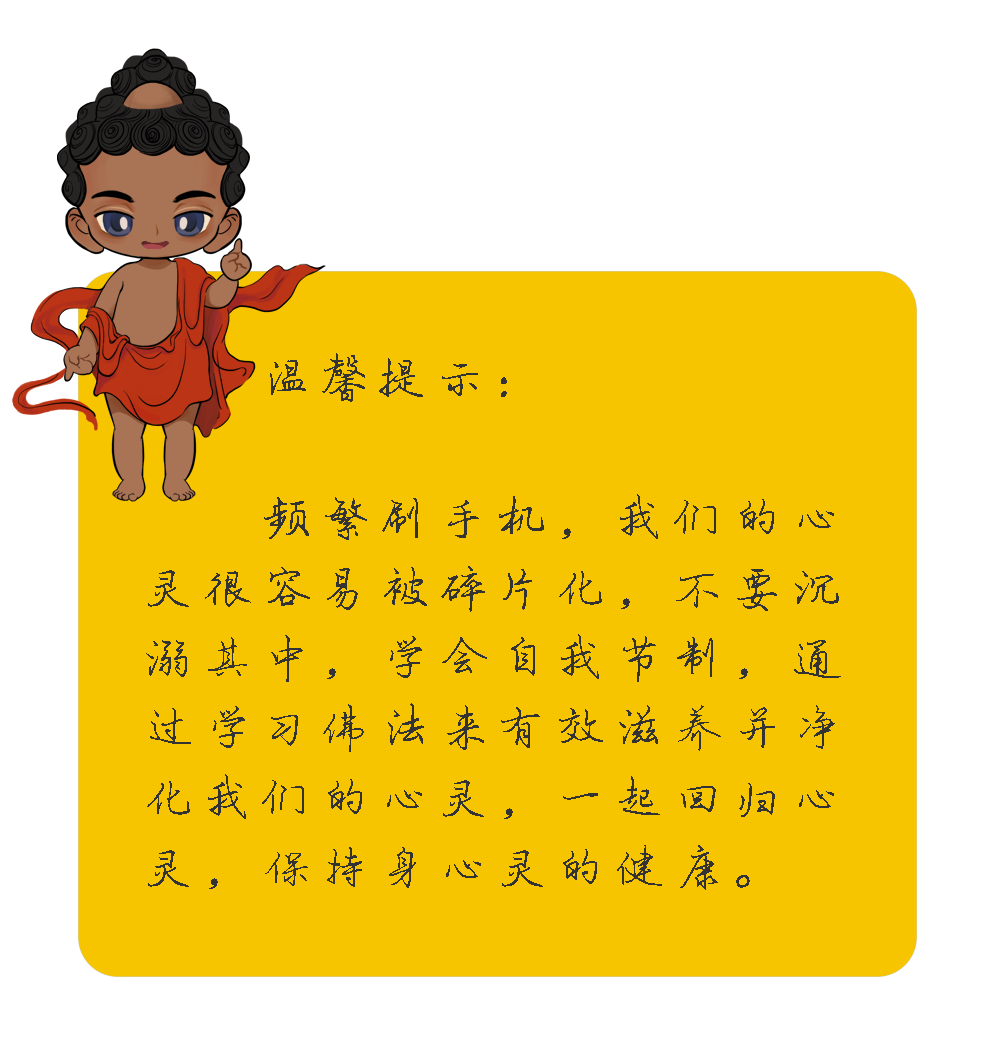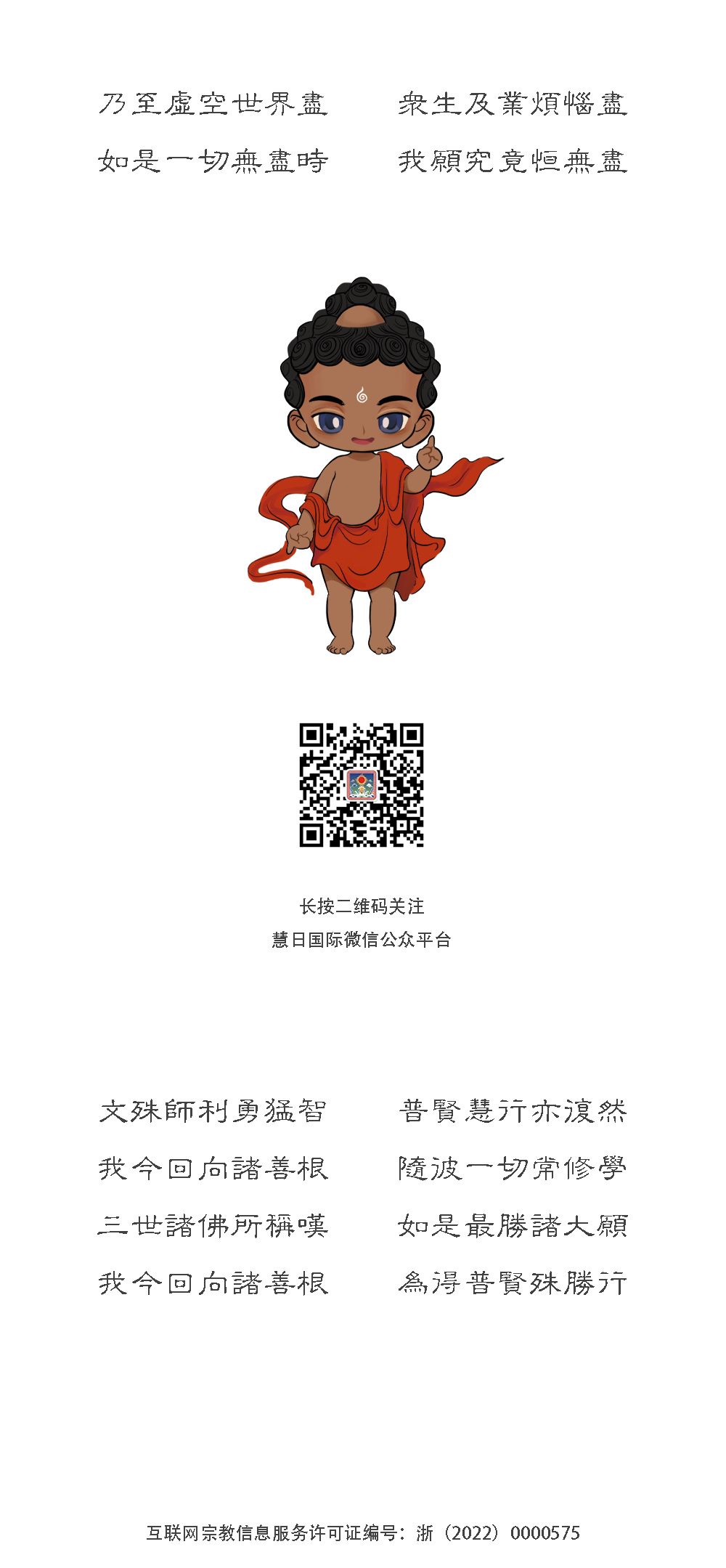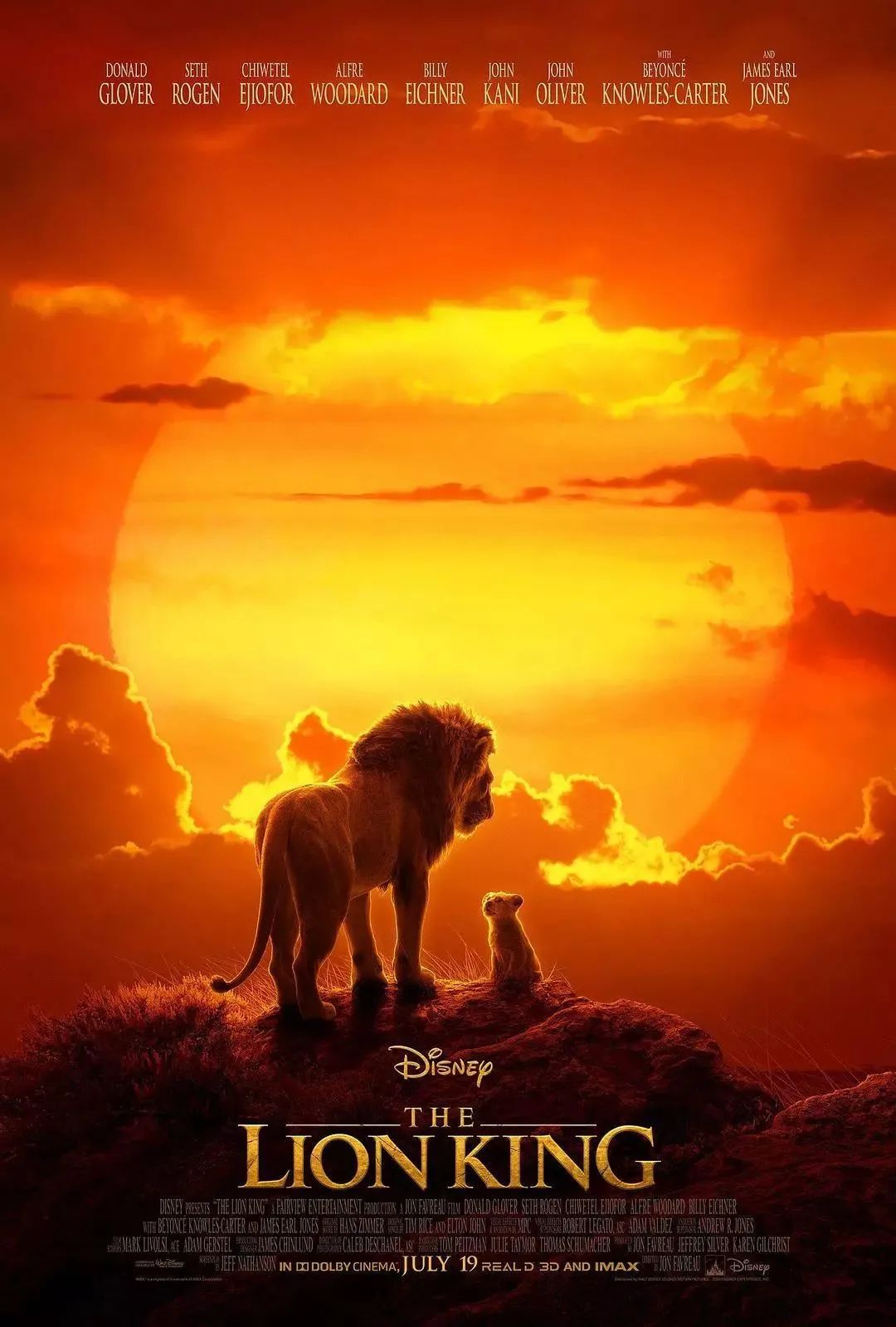找到生命的永恒,做自己生命的狮子王
A Buddhist
Perspective on
The Lion King
01
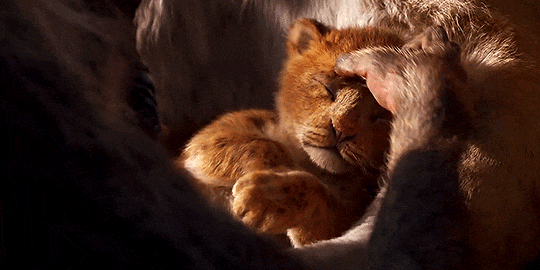

非洲大草原上,一轮红日冉冉升起。荣耀石上,巫师拉菲奇托起小狮子辛巴,向大家宣告:荣耀国未来的国王已经到来!
辛巴在父亲的精心培养下茁壮成长,一代狮王的优秀潜质已在他的身上初现。当太阳跃出地平线,父亲告诉辛巴,“国王的统治如太阳有升有落,总有一天,我会随着夕阳落下,而你会随着朝阳升起,成为新的国王。”
生命循环,每个人都在其中。辛巴希望父亲永远陪在自己身边,但成长的道路总非一帆风顺。心生嫉妒的刀疤联合鬣狗,引诱辛巴来到角马群必经的山谷。狮王及时赶到救下辛巴,却遭到刀疤的暗算,惨死在角马群中。在刀疤的欺骗下,辛巴误以为是自己害死了父亲,开始了漫长的自我流放。
狮王已死,辛巴走失,荣耀国群龙无首。刀疤趁此机会登上王位,联合鬣狗占领了荣耀国。
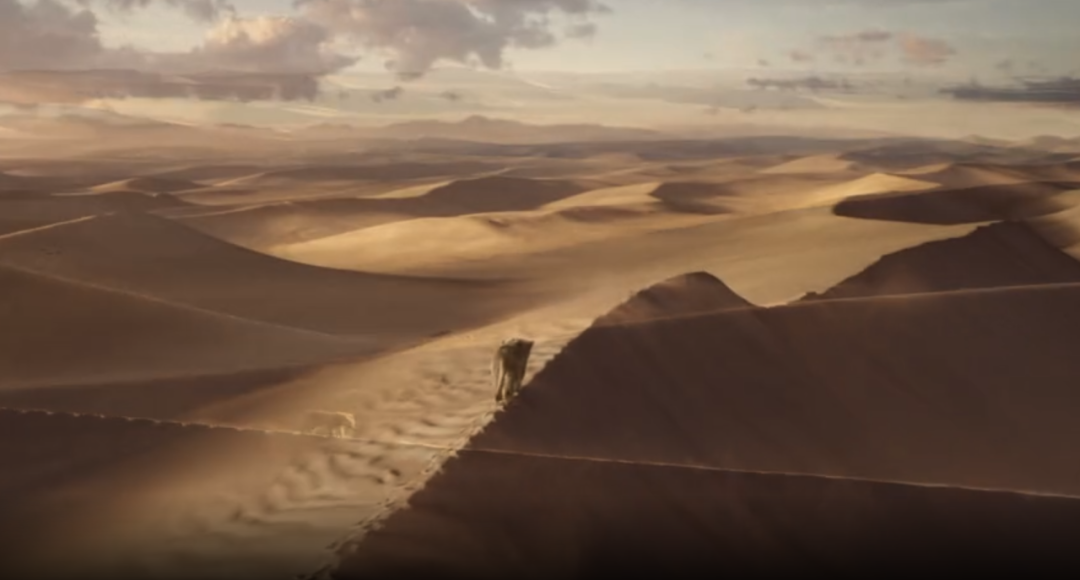

沙漠中,昏倒的辛巴被丁满和彭彭救起。丁满和彭彭信奉随心所欲的生存哲学,认为生命不过是一条直线,能走多远走多远。面对自己的无力和愧疚,辛巴选择了逃避,走向了一个承认失败并对失败坦然的选择:不要烦恼,不要责任,过无忧无虑的生活。
直到有一天,好朋友娜娜意外闯入辛巴的家园。她劝辛巴回到荣耀国,夺回王位。因为刀疤继位以后,荣耀国民不聊生。
是继续自欺欺人地快乐生活,还是直面痛苦的心结,回到荣耀国夺取王位?巫师拉菲奇带着迷茫的辛巴,去聆听父亲的心声。
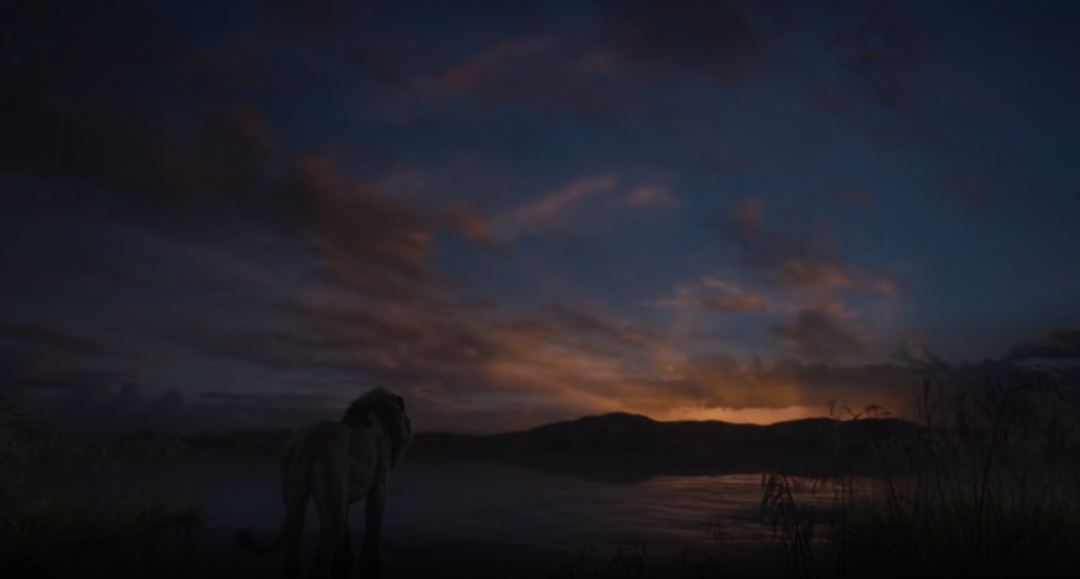
当狮王的慈祥面孔在天空闪现,辛巴似乎听见了父亲的声音:“你必须在生命循环中找到立足之地。”“记住你是谁——独一无二的真正的国王。”
“我是谁?”辛巴终于明白,他不仅仅是辛巴,他还是母亲的儿子,是荣耀国的国王,是所有动物的守护者,是广阔世界无限生命循环中的一条纽带。
辛巴回到了自己的故乡,在亲人和朋友的帮助下打败了刀疤,把鬣狗赶出了荣耀国。老狮王去世的真相也在这个过程中得以大白。

太阳再次升起,黑暗尽去。辛巴成为了新的国王。在他的带领下,荣耀国恢复了往日的生机,越来越多的动物聚集到这里,过着幸福安宁的生活。
02
守护好自己的身心世界
Reflection: Safeguarding the Inner World of Your Mind and Body
这部影片的结局是很欢喜的,但我们关注的不仅仅是一个结局。作为目前在地球上占统治地位的物种,人类就像狮子王一样,我们该怎么统治这个大地?这是这部影片给我们的思考。
在佛教里,狮子是有一定含义的。佛法就像狮子吼,文殊菩萨的坐骑就是青狮。虽然比起佛法的修行,这部影片表达的思想是很浅显的,但从整个人类的角度,我们怎样面对这个世界,这个思考是很深沉的,这也是修行非常重要的环节。
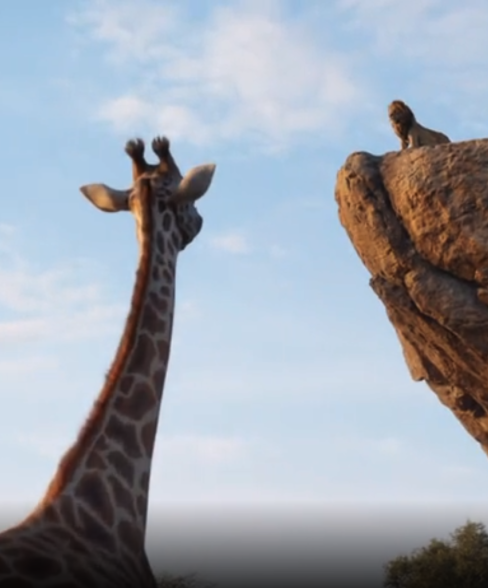
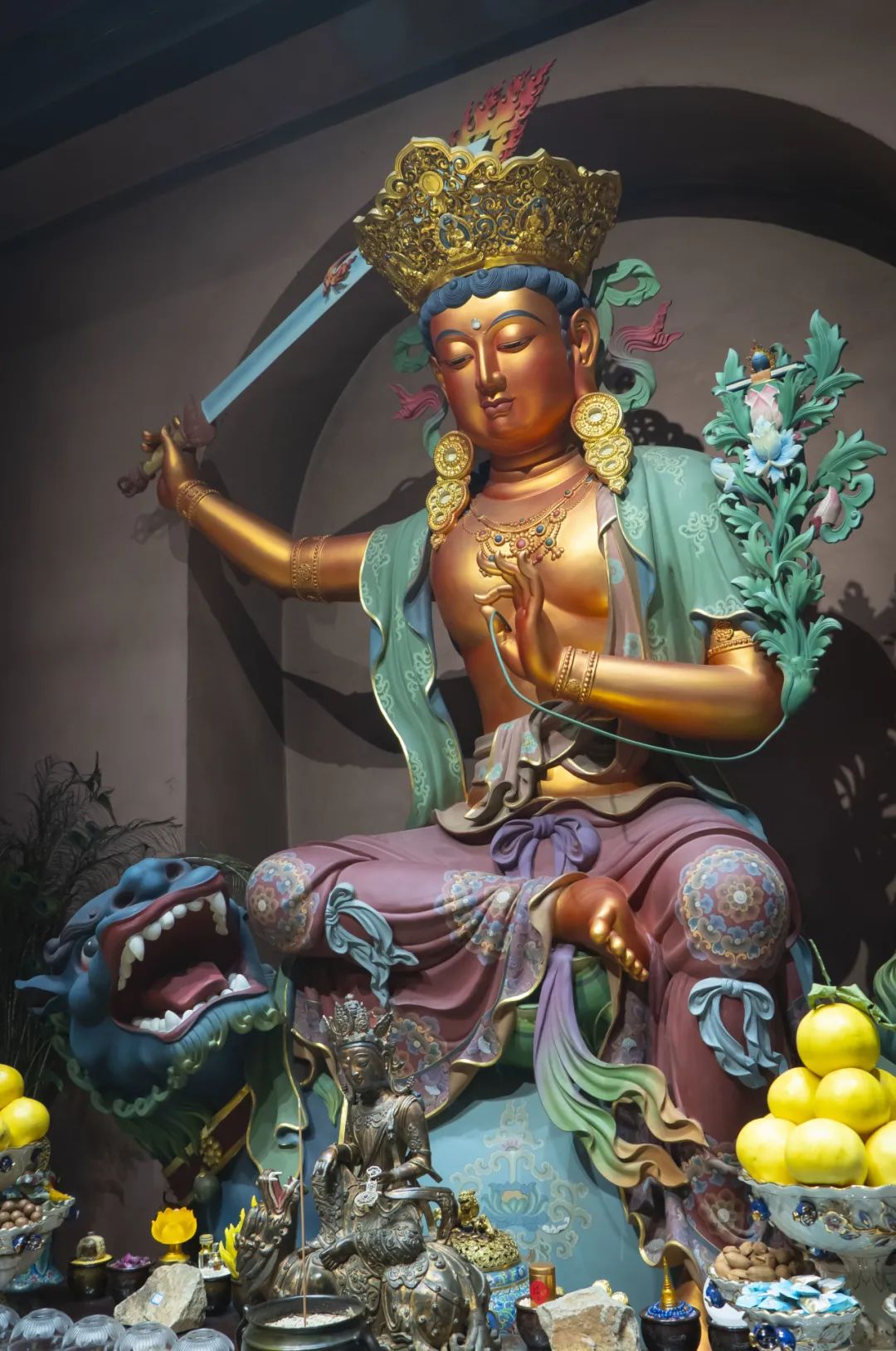
一方面,我们要认知五蕴皆空,另一方面,我们生而为人,身为凡夫还有凡夫的本位。所以太虚大师说“人成即佛成”,我们学佛、修行,实际上都绕不开这个问题。
On the one hand, we must recognize the emptiness of the five aggregates (skandhas). Yet, as humans, we inhabit the realm of sentient beings and must honour this existence. As the Great Master Taixu said, “The perfection of humanity leads to the perfection of Buddhahood.” Thus, the journey of learning Dharma and spiritual practice is inextricably tied to our human condition.
从个体生命来说,每一个生命就像一个世界,每一个世界里都有一个主角。这个主角,我们都愿意是狮子王;但实际上在我们的角色中,在阴暗的角落里也有刀疤和鬣狗。我们怎样让自己的主角是真正的狮子王,而不是它的同胞兄弟刀疤?
Each individual life is like a self-contained universe, with its own protagonist. We all wish to embody the noble qualities of the Lion King, but lurking in the shadows of our psyche are Scar and the hyenas. How do we ensure the sovereign within is a true Lion King, and not Scar?
起善念的是我,起恶念的也是我,就看我们认识谁、支持谁。如果你是你生命王国中的狮子王后,你会站在哪一边?你会像片中的王后那样,分得清老狮王的优点是什么,他跟弟弟刀疤间的区别是什么,始终坚定自己的立场,即使没有食物也不改变自己的价值取向,不出卖自己的肉体和灵魂吗?
The thoughts of virtue arise from us, as do the thoughts of malevolence. Who we choose to identify with and support shapes the ruler within. If you are the Lion King of your life, where will you stand? Can you distinguish, as the queen in the film does, between Mufasa’s virtues and Scar’s flaws? Will you hold steadfast to your principles, refusing to compromise your soul even in the face of adversity?
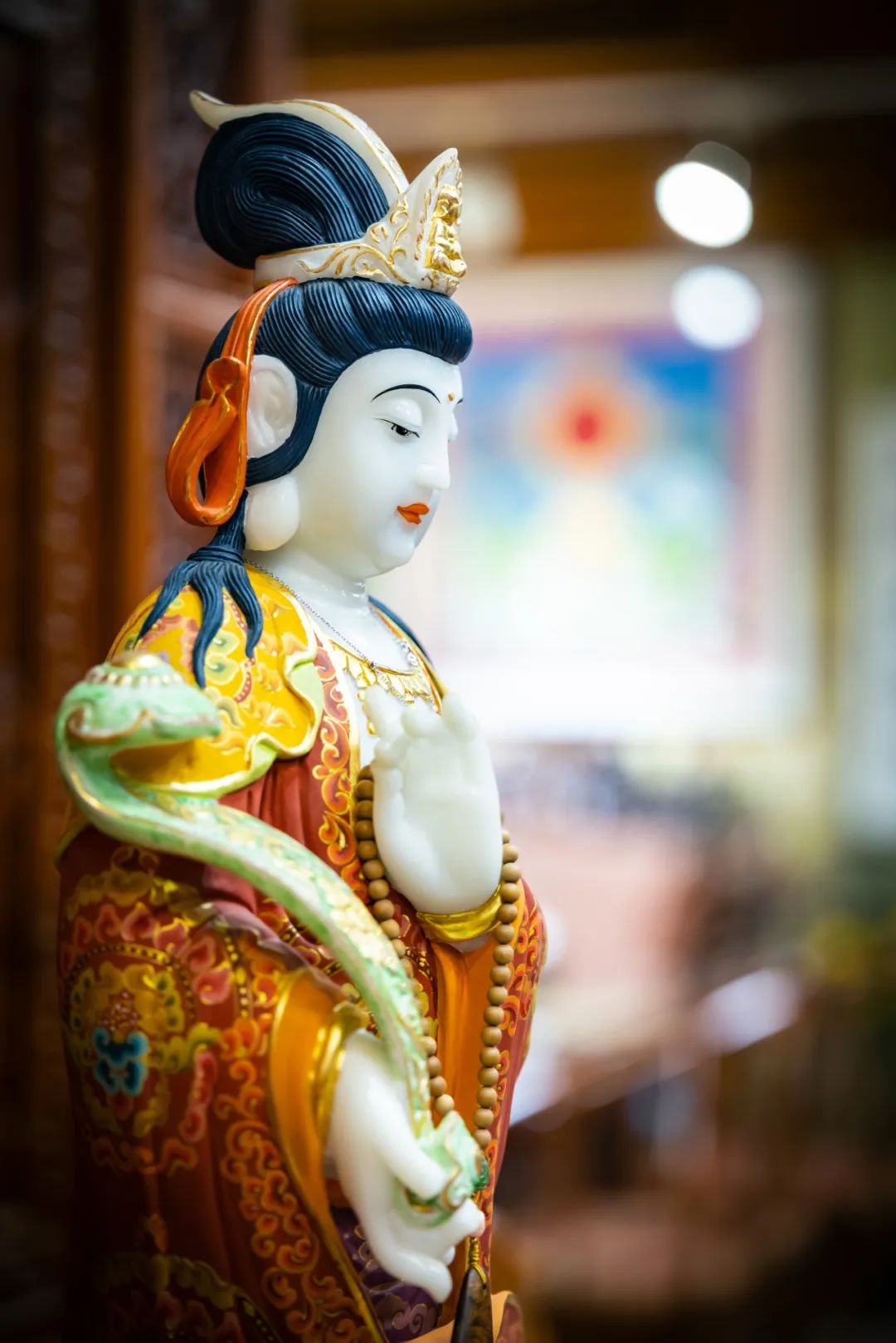
但现在更重要的问题是,很多时候我们根本不知道选择,这是我们要好好思考的。悉达多太子成道后,没有回到自己的国家继承王位,而是奔走四方、宣扬真理,在世间建立标准。两千五百年前的孔子也是这样,所以后人赞美他:天不生仲尼,万古如长夜。我们心灵的光明从何而来?这是需要我们去闻思的。
The greater challenge lies in recognising the moment of choice itself—a task worthy of deep contemplation. After Prince Siddhartha’s enlightenment, he did not return to claim his royal inheritance but journeyed forth to establish the Dharma, setting a standard for the world. Similarly, Confucius wandered to spread his teachings, and generations have praised him: “Had Heaven not given us Confucius, the ages would have remained in darkness.” Where, then, do we find the light of our minds? This question demands study and reflection.
影片里,当老狮王带着辛巴散步时,实际上就是在慢慢地给它建立世界观、价值观。
In the film, Mufasa walks with Simba, gradually instilling in him a worldview and values.
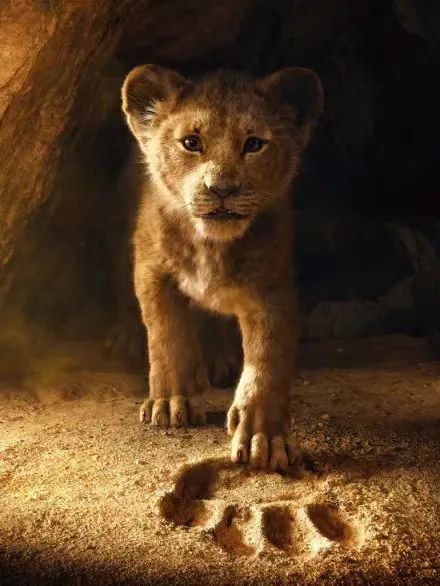
就像黄豆能长成豆芽,是有人在细心观察它、保护它,按时给它浇水,刻意给它生长的环境。我们修行也是这样。所以回想跟师父的点点滴滴,当我第一次与师父目光相接时,其实师父就已经开启了他一步步摄受的过程。这么多年过去了,我们也并没有因为师父圆寂而远离他,而是回味、忆念,就像片子里辛巴感受到他父亲的存在一样。
It is similar to how a soybean grows into a sprout—it requires careful observation, protection, timely watering, and a deliberately created environment for growth. Our spiritual practice is the same. Reflecting on the moments with my master, from the very first time our eyes met, my master had already begun the step-by-step process of guiding me. Even after all these years, though my master has passed away, we have not grown distant. Instead, I recall and cherish those memories, much like how Simba senses the enduring presence of his father in the film.
我们能看到这样的片子是幸运的,这也代表了人类的希望。我们要珍惜这个大环境,建立正确的观念,守护好自己的身心世界。
It is a blessing to be able to watch such a film, as it represents hope for humanity. We must cherish this environment, cultivate correct perspectives, and diligently guard the world of our body and mind.
03
找到生命的永恒
Discovering the Eternal in Life
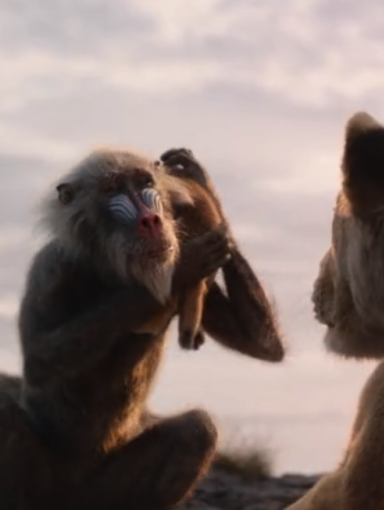

电影《狮子王》里,狒狒拉菲奇在荣耀国里地位特殊,它脸上的白道子表明他的身份跟精神与信仰有关,它就像我们人类的一个宗教神职人员,对生命与宇宙有相当高的解读。所以虽然在个体上它没有狮子那么强大,但对狮子家族的命运却具有启迪性的作用。
In The Lion King, Rafiki the baboon holds a unique position in the Pride Lands. The white markings on his face signify his connection to spirituality and faith. He is akin to a religious figure in human society, possessing profound insights into life and the universe. Although he is not as physically powerful as the lions on an individual level, he plays an enlightening and pivotal role in shaping the destiny of the lion family.
当小狮子辛巴问拉菲奇你过去见过我爸爸吗?它回答说是的。还补充了一句,我到现在也认识木法沙。这句话我今天看到后,有一些特别的触动。
When Simba asks Rafiki, “Have you seen my father before?” Rafiki responds, “Yes." He then adds, "And I still know Mufasa." This line struck me in a particularly profound way when I saw it today.
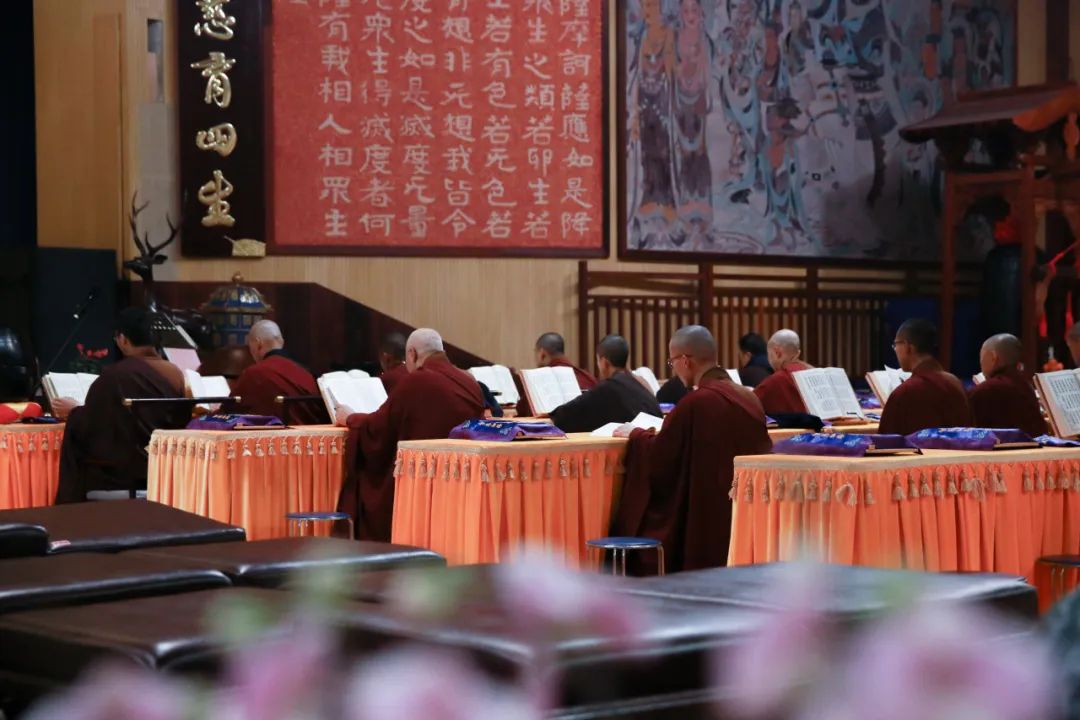
我就想到,我们出家人在做着什么事呢?我们是在学佛,在带着大家一起学佛。我们不仅在向大家介绍三千年前的佛陀,同时也正在向大家介绍当下什么是佛。除了当下有极乐世界,阿弥陀佛今现在说法,我们心中的佛是什么?
I am reminded of the role of monks. In learning and sharing the Dharma, we do not merely introduce the Buddha of three millennia ago; we reveal the Buddha present in this very moment. Beyond the Pure Land and the teachings of Amitabha Buddha lies the Buddha within our own hearts.
所以出家人在现实生活中的角色就像《狮子王》里的狒狒,当你们迷茫的时候,自暴自弃的时候,出家人就出现了,他不单单认识过去的“木法沙”,实际上现在也跟“木法沙”在一起,甚至可以带领你们当下就见到“木法沙”。
Thus, the role of monastics in real life is akin to Rafiki in The Lion King. When you are lost or despairing, the monastic appears—not only knowing the "Mufasa" of the past but also being with "Mufasa" in the present. Moreover, they can guide you to encounter "Mufasa" here and now.
在片子里,拉菲奇就带着辛巴来到河边,天空中除了乌云和闪电,也隐隐显出了爸爸木法沙的轮廓。那闪电就好像爸爸的大脑在运行,明灭的电光就像爸爸的眼光,辛巴甚至能听到爸爸厚重的声音。在这里,爸爸的一句话又非常重要。
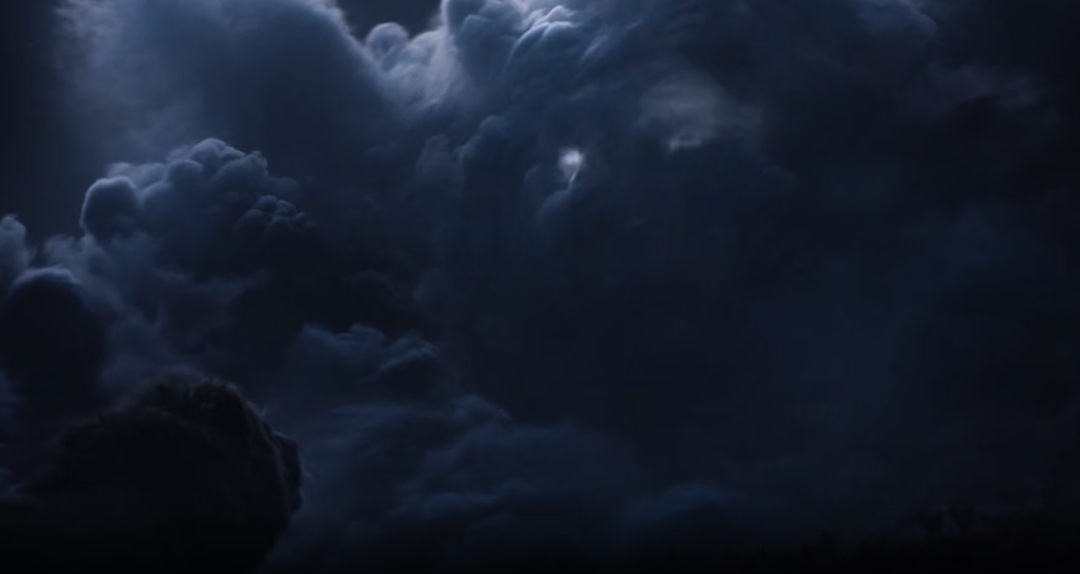
辛巴对爸爸说:“我过去……”,意思是过去时爸爸你曾带着我,告诉我这些道理。但爸爸补充了一句,爸爸说那是“永远”!这句话很重要,我也是到今天才发现,觉得应该跟大家分享一下:
从我自身来讲,我1991年第一次见到师父,到2005年师父圆寂,我在师父身边的日子就好像辛巴在他爸爸木法沙身边的日子一样。现在,虽然我越来越相信师父跟我同在,我的想法我的一切师父都悉知悉见,而且有各种不同的方法在引导我们、帮助我们,但是作为凡夫,从线性的时间维度上来说,我们认为那是过去,我过去曾跟着师父。但刚才,老狮王在空中说了这句话,它说:“不,那是永远。”
In 1991, I met my master for the first time. By 2005, he had passed from this world, entering Parinirvana. My years with him were like Simba’s time with his father, Mufasa. Even now, I increasingly feel his presence, guiding my thoughts and actions in myriad ways. Yet, as a sentient being, I often perceive these moments as part of the past and I had followed him before. But Mufasa’s words reveal a deeper truth: “It is not the past—it is forever.”
这个“永远”的意思是什么?从我们凡夫的角度,认为那是过去,但从狮子王的角度,从佛的角度,或者从我师父的角度,实际上弟子跟师父在一起,不是一年或十年,而是永远。
What does this “forever” mean? From our limited perspective, the master-disciple relationship may seem bound by time. But from the perspective of the Buddha or my master, such connections transcend temporal boundaries. To the Buddha, even a fleeting encounter—be it a single day or a mere glance—forms an eternal bond.
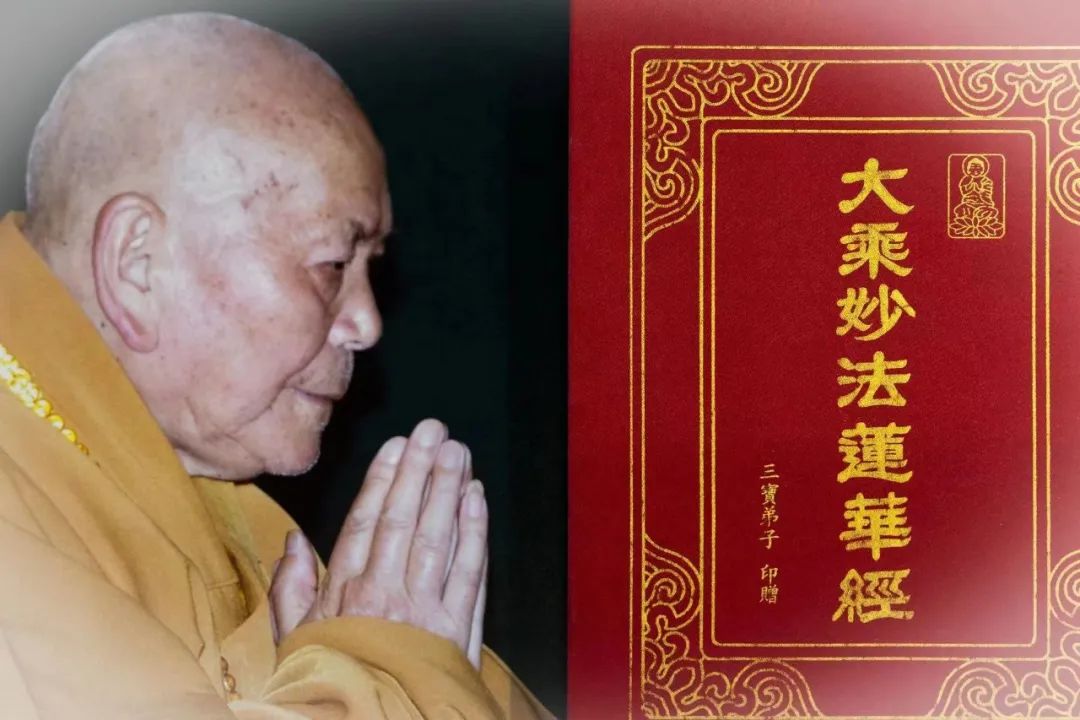
我们跟着佛无论是十年还是一年,一个礼拜还是一天,乃至只是看了佛一眼,对佛来说,都是永远。所以老狮王的这句话跟《妙法莲华经》特别契合,为什么叫“成佛的妙法”呢?《妙法莲华经》里佛陀就讲到:“若人散乱心,入于塔庙中,一称南无佛,皆已成佛道。”
Whether we follow the Buddha for ten years, one year, one week, or even just for a single day, or simply glance at the Buddha once, from the Buddha’s perspective, it is all eternal. This is why the old Lion King’s words align so perfectly with the Lotus Sutra, which proclaims: “Should any distracted mind enter a stupa and recite ‘Namo Buddha,’ they have already embarked on the path to Buddhahood.” That is why the Lotus Sutra is regarded as “a guide to the Buddhahood”.
我们读经典时,当下你只理解了你理解的部分,但不代表你明天还是这个水平。所以一个人读一百遍一千遍经典,有可能就有一百遍一千遍不同的感受。这就是佛的经典的圆满之处,经典本身就是无量光无量寿,就是具有超时空性的。当我们的水平到什么程度的时候,我们再来看经典,就会从经典里解读出更高的内涵。
When we read the scriptures, we only understand as much as our current level of comprehension allows. However, this does not mean that our understanding will remain the same tomorrow. A person who reads a scripture a hundred or a thousand times may have a hundred or a thousand different realisations. This is the perfection of the Buddha’s teachings—the scriptures themselves embody infinite light and infinite life, transcending time and space. As our level of understanding evolves, we can uncover deeper meanings from the scriptures each time we revisit them.
经典如涌泉,祂实际上是活的,是佛陀的智慧,我们有多少水平,我们就能在经典里得到多少启迪。经典永远是我们皈依的对境,祂永远在比我们更高的地方启迪着我们。
The scriptures are like a flowing spring—they are alive and embody the wisdom of the Buddha. The level of insight we gain from them depends on the depth of our own understanding.
Each reading of the sutras reveals new insights, reflecting our evolving understanding. The Dharma’s timeless brilliance shines like an inexhaustible fountain, ever alive and responsive. The scriptures are our eternal refuge, always guiding us to higher truths.
END
